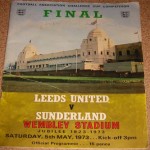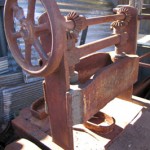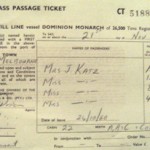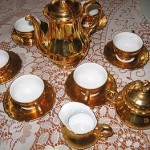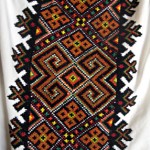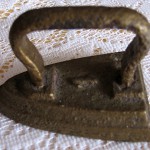German
Gumbinnen, East Prussia, Germany
Bremerhaven, Germany in late October 1958
Melbourne on 29 November 1958
Bonegilla for 10 months
Nowranie farm station, near Urana, Riverina region, NSW
Cook at Bonegilla migrant accommodation
Farm station cook and home handywoman
I was born on 12 January 1937 in Gumbinnen in East Prussia, Germany. I grew up in Ruhpolding in Bavaria. My maiden name was Waltraud Emma Jonkuhn. My husband’s name was Hans Gunter Wademar Schilling and he was born on 13 September 1934.
I was only a little girl during the Second World War. I was always hungry, always crying for food. My mother said, “Think of something else but food”. It still makes me sad to think about that but that is why I am such a good eater now.
But my life before coming to Australia was good. I started work at 15 in 1952. I was at boarding school and when I left I went straight out to work because my father had died and my mother had four children under 18: two daughters and two sons. I became a cook and worked in a hotel. We didn’t get paid much but I had a room and my food. The wage was about 25 marks a month, which is about 20 dollars. I saved hard.
When Christmas came, the hotel people gave out Christmas gifts. In 1956, I got the Greska coffee grinder and in 1957, I got this Siemens iron.
I brought the iron and coffee grinder out to Australia. We thought it might go ‘bang’, that it might burn out, but 51 years later, it is still going. I bought a steam and dry iron and had it for eight years in between but it rusted out so I threw it away and used my old Siemens iron again. It also earned me some money when I started to do other people’s ironing. I still use my coffee grinder too.
I saved up and bought the transistor radio myself. It cost a lot of money. It is an Akkord radio, made by the firm who made the first portable radios in Germany.
My husband and I decided to go Australia for our honeymoon and stay two years. I loved being engaged. It was the nicest time in my life. I had a beautiful fiancé. He spoilt me rotten. We went to the pictures and we went to cafes and had cassata and sauerkraut and sausages and things like that after work.
He wanted to get married and I told him that I wasn’t going to get married and live where we had to share a laundry and a kitchen. When the babies came, I wasn’t hanging the nappies out the window and things like that. He asked me what I wanted. I said, “My parents have a house in East Prussia with flowers in the front and vegetables in the back. They had chooks and ducks and that’s what I want. I want children and I can’t see children being happy in an apartment.”
We had two weddings before we came out. The first was in a registry in the Rhineland on 16 August 1958. We did this so that when we applied to come to Australia we were a married couple. Then just before we left on the ship we were married in a Lutheran Church in Ruhpolding.
My sister said before we left Germany, “You are going to Australia where milk and honey flows and where the pigeon flies onto your mat. We eat pigeon in Germany. And I said, “No! We just want to see how other people live; we are coming back in two years.” She said, “You know, I only have you. I only have one sister”.
I brought out three big boxes that had to be specially made by a carpenter. There was also my glory box and my husband’s motorbike. I had to pay extra for them because you could only bring two suitcases. But I was working hard when I was young and had a good savings account.
My mum said, “Why you take all your stuff? You are coming back in two years”. And I told her it was because it was mine and it had to be where I was. I had blankets and towels and eiderdown covers that you didn’t have here. Pillowcases were a different size. I had to make my own pillows here in Australia. First, I made them with kapok [fibre] and then I had ducks so I made the pillows with [their] chest feathers.
My most precious possessions that I left behind were my family especially my little brother. He was only eight and I loved him so much. That was very hard. It makes me sad even now, because he was my baby. He wasn’t ordered, he just came, and my mum was 41 when she had him. I was the happiest girl on Earth when he came. I thought it was such a terrific gift. Such a gorgeous little creature and Mum trusted me with him. I bathed him and I fed him and did everything with him. When I was in school, I couldn’t wait to come home and talk with him. I just loved him so much.
I said goodbye to my family in Ruhpolding. My mother travelled further to Traunstein with us and then my husband and I had to get the train to Bremerhaven and she stood there with my little brother and waved. They got smaller and smaller as I looked back.
We sailed on the Castel Felice after leaving Bremerhaven in late October and arrived in Melbourne on 29 November 1958. It took about six weeks for the trip. It was very nice. We were supposed to be on our honeymoon but my husband was with five other men in a six man cabin and I was in a cabin with three other ladies. They didn’t tell us in Bremerhaven that we would be separated. They waited until we were in the ocean and said that if anybody complains they can get off at the next port and go back. Naturally, we didn’t go back. But we had one table for ourselves while everyone else was sitting together on great big tables. We were very privileged.
We went through the Suez Canal, Port Said, Fremantle, then Melbourne. I have here my certificate of registration issued by the Department of Immigration, Australia. The no. is 696492 issued onboard the ship in Melbourne. Also, see my husband’s German passport no B 1448635. I did not have a separate passport. I was included on his passport as his wife.
When we were on the train going to the Bonegilla migrant camp, I said to my husband, “Look, look out the window, oh my God, what a poor country. Look at all those rusty roofs and the fences, all the palings are off and there are old bomb cars! Look at all the mess! Don’t they clean up, don’t they cut the grass?” And we thought that must have been the slum area. I said, “I hope we don’t end up with something like that”.
My husband initially wouldn’t let me work at the camp, but I begged him to let me so we could get a deposit for the house. I worked as a cook in Block 16. My husband, who was on a two year work contract, worked first as a stoker for the stove boilers (we cooked with steam) and then he became a cook. I was second-in-charge and he was the very last in the line of cooks.
We had one room and there were two single beds and I used to push them together every morning against the wall to make a sofa. People use to say, “Are you going to stay here forever? You are making it so cosy!” I had two fruit boxes turned upside down and scarves for curtains. I put two tablecloths on the wall; one decorated with fruit and the other with flowers. I collected beer bottles from other people (we didn’t drink because we were saving our money) and I put them around like a border to make a garden.
I had a little Tauchsieder to make hot water for our coffee. You immerse the electric prong into a jug of water and it heats it up. Here it is, I still have it. The Tauchsieder came from Germany in my glory box. I bought the blue aluminium jug in Albury in 1959.
At Bonegilla, it was compulsory to go every night for English lessons and if you didn’t appear you needed a doctor’s certificate. We were never sick and my husband and I were very ambitious to learn English. We spoke English to each other, the Germans at the camp would say, “Here come the English-speaking Germans,” when they saw us. I use to say to them, “Well, if it’s good enough to be in the country it’s good enough to try and speak their language”.
We left Bonegilla after ten months. We went to a farm station called Nowranie (Nowranie Pastoral Co. Oaklands) near Urana and Jerilderie in New South Wales. It was a big property. The owners, the Simpsons, had four children and a cook, a cleaner and a nurse for the children. There was also a gardener, a foreman and about eight station hands.
When we came to the station, they said we spoke very good English. I was the cook on the station and my husband, who trained for five years in the Rhineland as a weaver, eventually became a stockman. The boss let us have the old Dodge car once a week. We were allowed to drive it for tuppence a mile. That was compulsory, part of the employment terms. They had to give you a car so that you could get away on your one day a week off. You could choose either a Saturday or a Sunday. We had to write the mileage down and would fill up [with petrol] before we left [and] fill up again when we got back. The cost would be taken out of our wages.
We had an accident with our motorbike and it was going to take three months to fix, so my hubby said we would have to buy a car. Australia is a big country and you need a car. So we bought a brand new VW in Wagga Wagga, but it was very hard for me to part with the money because I wanted it towards a deposit for a house. Hubby wanted fancy wheels and push button radio and I chose a tomato red colour with a sun visor, but had to have [another shade of] red. It was 44 guineas for the push button radio and the car cost £1,224. We had it for nine years and got $2448 when we traded it in on a new car.
We were at Nowranie for about eleven months. German friends of ours went to Newcastle and started work at the BHP. What they made in a month on the farm where they worked before, Peter made in a fortnight at the BHP. But he was doing shiftwork, Saturdays and Sundays. He kept on writing to us and putting the pay dockets in to show my hubby. My hubby said, “We are going to Newcastle too.”
We went to Newcastle in 1959 and lived in Mayfield. We could leave our new VW in the garage and walk to work. We were very sensible. We got our first house in 1960 and paid £350 for the deposit. The house cost £1650 but we had no sewerage, no curb and no gutter, a cement tub in the laundry and a copper, no washing machine. I was eight years without a washing machine. My son Johnny was one year old when I got one. It was 12 months before I got a refrigerator.
We had a big garden and grew everything. We had chooks, ducks and all the vegetables in the world. My hubby wouldn’t let me work so when he was on dayshift I would make cakes for people. I did other work but I told them I could only do it when my hubby was at work and that was how I bought my first fridge. I worked for about five or six people. One lady had a tile loose on her roof so I went up through the manhole and fixed the tile.
We were real battlers but very determined. I came from a family with four kids and I had to wear all my sister’s second-hand things. She got new things and I got her things and I didn’t mind. In Australia, I would buy good old clothing and woollen jumpers from second-hand shops and take them to bits and make overalls and the kids’ jumpers out of the wool. This is how we got ahead.
We only wanted to stay two years to see what it was like and I am still here after almost 51 years. As I get old now and am on my own, my children living far away and my husband dead, I just keep busy.
I would not recommend to anybody that they leave their family and immigrate to another country because it gets very, very hard. Especially as you get older, you think back on it. You are torn backwards and forwards. I loved my family so much and I didn’t see them for 26 years.
When you are home with your family in Germany you think of those in Australia and when you are home in Australia you think of those in Germany. It is not easy. But I am very content with my achievements here in Australia. I have been home four times to Germany and I have been treated as a guest of honour.
The first time I went home to Germany I stayed for 12 weeks but after about six weeks I said, “I am looking forward to going home to Australia”. And my mother said, “You are home here”. I said, “No Mum, Australia is my home”. Australia is home because that is the country where I achieved something and where my kids are and where my husband is.





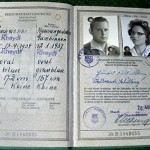
!["In 1956, in the German hotel where I worked as a cook, I received this Greska coffee grinder as a Christmas gift. I still use [it] too."](../../../cms/wp-content/uploads/2009/08/schilling-coffee-150x150.jpg)
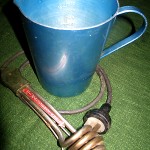
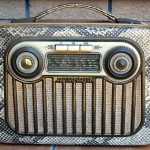
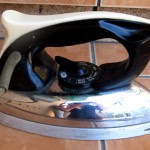
!["My certificate of registration [was] issued by the Department of Immigration onboard the ship in Melbourne in 1958."](../../../cms/wp-content/uploads/2009/08/schilling-certificate-150x150.jpg)
